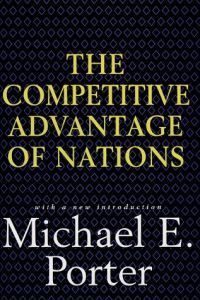Join getAbstract to access the summary!

Join getAbstract to access the summary!
Michael E. Porter
The Competitive Advantage of Nations
Free Press, 1998
What's inside?
Nations build economic advantages by encouraging industries to resist complacency and pursue innovation.
Recommendation
The causes of national advantage include much more than a country’s reserve of affordable workers and raw materials. This in-depth study of 10 nations from the post-World War II period through the 1980s provides a useful framework for fully assessing national economic prowess and momentum. Although Michael Porter’s research covers a limited time period, the seminal author and Harvard Business School professor has developed a clear method for distinguishing economic cause from effect and for demystifying complex global trends. His four-point “diamond”-shaped analysis of national advantage in the world economy remains apt and applicable. Porter, a pioneer, says some readers may prefer “shorter paths through the book,” a nearly 900-page tome. To that end, he organizes the content into self-contained, thematic sections of selective readings. getAbstract recommends his enlightened explanation of why certain industries, and their home nations, either grow or shrivel in the heat of world competition.
Summary
About the Author
Michael E. Porter is a professor at the Harvard Business School and the author of Competitive Strategy and Competitive Advantage. He served on President Ronald Reagan’s Commission on Industrial Competitiveness.






















Comment on this summary